- Home
- slideshows
- miscellaneous
- Finland and Uganda are the world's fittest countries - here's what they do to stay in shape
Finland and Uganda are the world's fittest countries - here's what they do to stay in shape
Uganda boasts the world's fittest population.

Boxing, cricket, and soccer are all popular sports in Uganda.
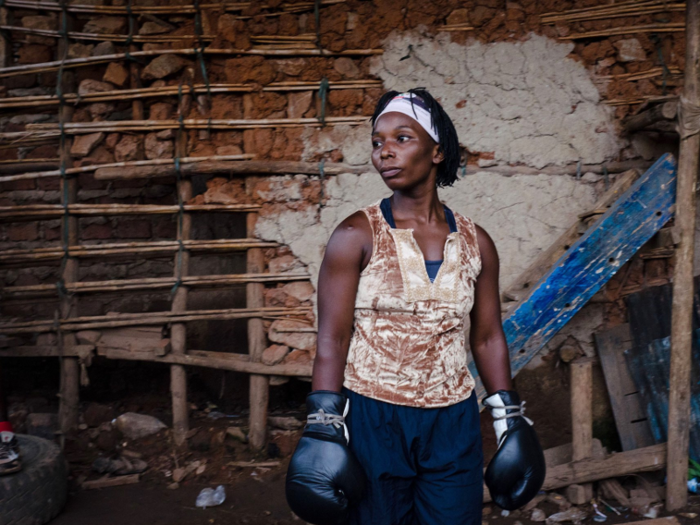
Uganda's male-dominated boxing landscape can be distressing for women competitors, though.
"It's very frustrating to train with men, wake up early to run hills, come in at the right weight, only for a fight day to come and there are no women to fight against," boxer Hellen Baleke told Reuters.
Part of the reason that some Ugandans are so fit is simple: They have to be to get through the work day.
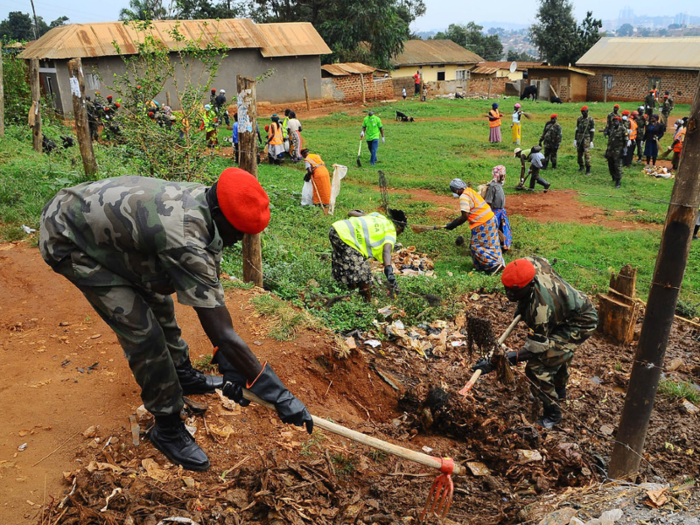
Abiasali Nsereko, who's a 68-year-old farmer in Luweero, Uganda told the BBC he wakes up at 5 a.m. every day to milk his cows.
"I spend about eight hours on my feet, six days a week," he said. "I grow all the food that we eat."
The same is no longer true in other places around the globe.
"In wealthier countries, the transition towards more sedentary occupations and personal motorized transportation probably explains the higher levels of inactivity," the WHO report says. "In lower-income countries, more activity is undertaken at work and for transport; however, these behaviours are changing rapidly."
The report authors urge everyone to walk more, bike, and play sports for fun during their free time, no matter where they live.
According to the WHO study, people in Jordan, Moldova, Cambodia, South Korea, and Nepal all report that they're more active than people in neighboring countries, both at home and at work.

In many of the world's most active countries, manual labor and walking from place to place to get around is almost a given.
In Uganda, for example, Jennifer Namulembwa spends 90 minutes walking to work every morning.
"I'm used to it so I don't feel the distance," she told the BBC. "I never wear nice shoes to work. I would also like to enjoy the good life sometimes; ride in a car or on a motorcycle."
Finland wasn’t always so in shape. Back in the 1960s, the country had the worst male heart-disease rate in the world. Then, in the 1970s, Finns got serious about working out, eating right, and smoking less.
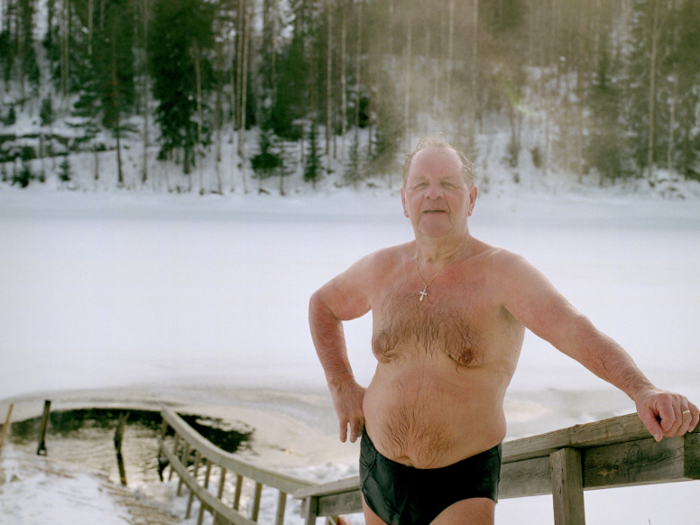
Finns are now smoking much less than they used to, and they have also changed their diets.
"Finnish men used to say vegetables were for rabbits, not real men, so people simply did not eat vegetables," Pekka Puska, director of the National Institute of Public Health in Helsinki, told the Guardian.
That's not the case anymore.
Finnish people even came up with their own way to measure heart health: the FINRISK calculator.
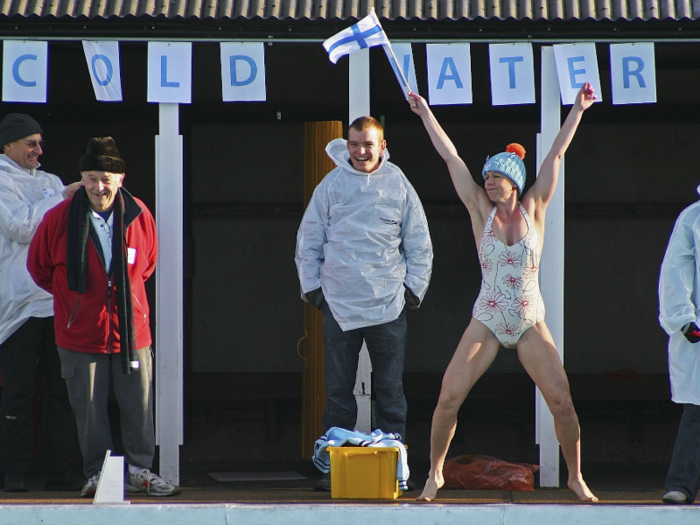
The calculator helps predict how at risk someone is of suffering a heart attack in the next 10 years, based on factors including their blood pressure and cholesterol levels. Those are two things that can both be actively lowered with more physical activity.
Finnish people are generally very active: 56% of adults (from 30 to 64 years old) get at least an hour of moderately intense physical activity per day, according to the WHO.
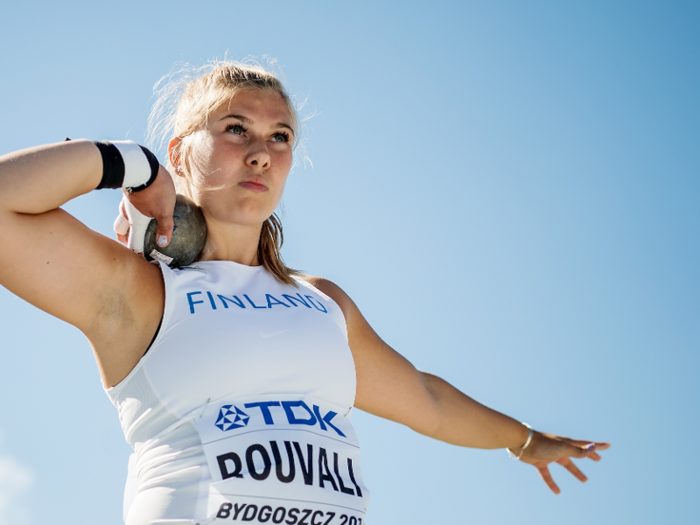
Finns don't let the bitter cold of the Arctic Circle keep them from getting their hearts pumping outside year round. That emphasis on exercise is also a key part of the turnaround in Finnish heart health.
Finland even invented a new sport called "Nordic pole walking" in the 1960s.
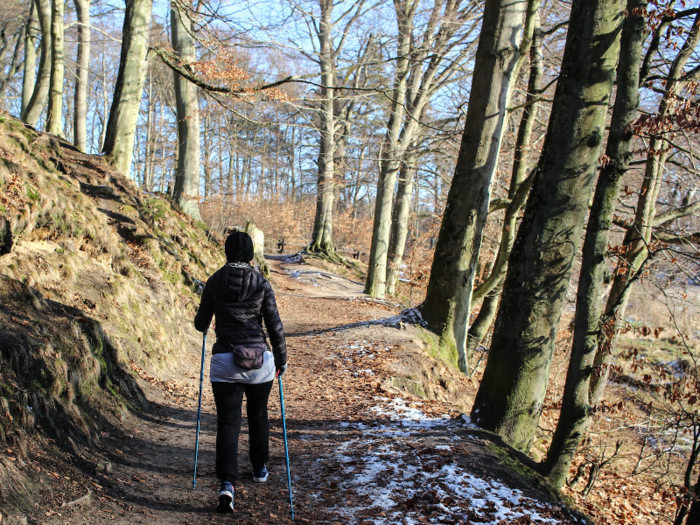
"The skis and poles at the school where I was teaching were in very little use, so I decided to take the opportunity to use the poles in a more versatile way," Leena Jääskeläinen, one of the very first pole walkers, said in an interview with the International Council of Nordic Walking.
Finnish employers want their workers to stay fit. Finnish companies spend an average of $220 a year per employee on physical activity, providing saunas, workout facilities, and gym vouchers, according to NPR.
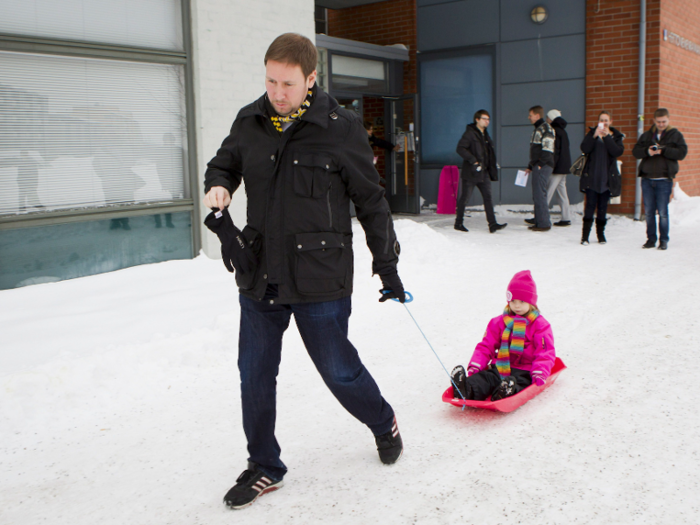
Finland's Institute of Occupational Health is dedicated to improving Finnish work life, and many offices have their own saunas and gyms.
"We have a lot of research showing that investing in work well-being will bring back as much as six times [the amount companies invest]," Matleena Livson of the Finnish Sports Confederation told NPR. "Because you reduce sick leaves, you improve the cohesiveness and good spirit, and you improve employer image at the workplace."
Finnish kids are encouraged to get outside and stay active at school, too.
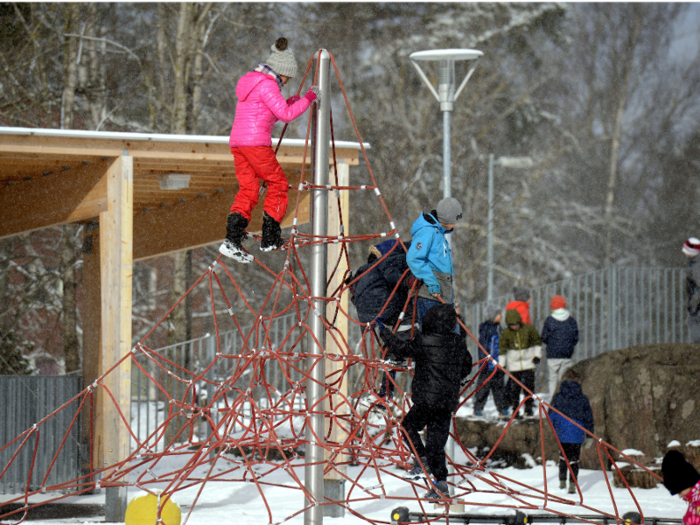
Some schools in Finland are even considering pulling desks out of the classroom.
"Some children learn very well sitting at a desk and listening, others would benefit greatly from moving around the room talking with their classmates," Anneli Rautiainen from the Finnish National Board of Education, told the BBC in 2016.
Finland consistently has some of the highest math, reading and science scores in the world, according to data from the intergovernmental Organization for Economic Cooperation and Development (OECD).
There's also evidence that enjoying saunas and polar plunges, as many Finns do, may help our hearts: People who sauna on a regular basis tend to have better blood pressure readings and lower rates of heart disease than others.
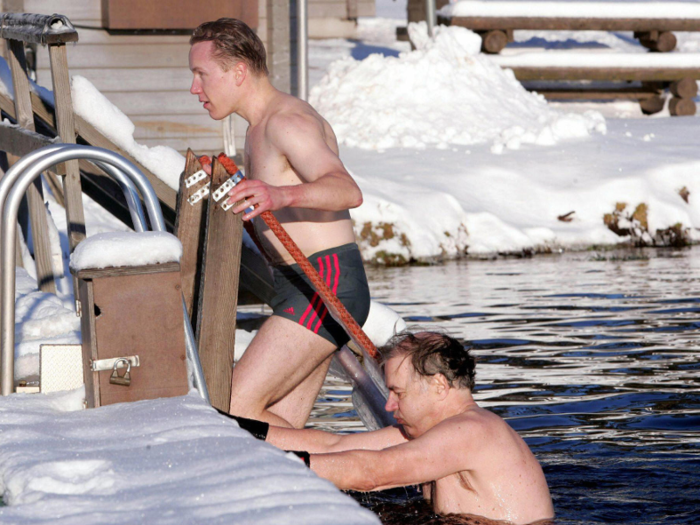
The practice of seeking to improve your health by forcing your body to cope with hot and cold temperatures is known as "environmental conditioning."
Finland's emphasis on physical fitness may be one of the reasons the nation was dubbed the happiest country in the world again in 2019.
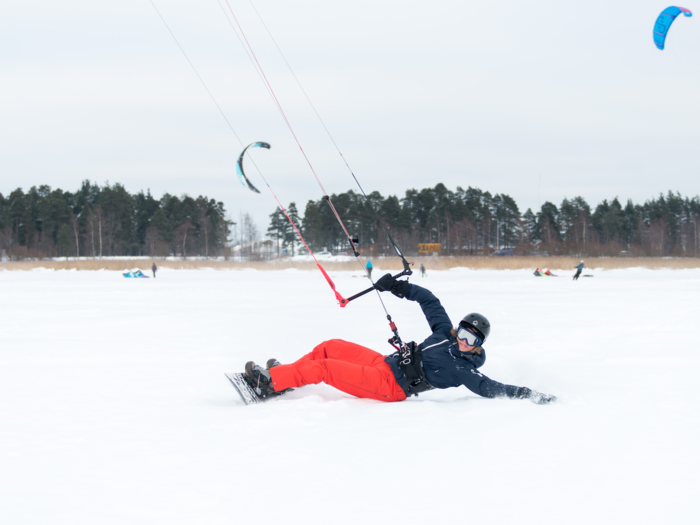
The United Nations' World Happiness Report ranks 156 countries each year based on "how happy their citizens perceive themselves to be," and Finland came out on top in the report, both for immigrants living in Finland and for native-born Finns.
Scientists and exercise pros aren't surprised: they consistently find that when people get moving, they're less stressed, calmer, and in better spirits.
So no matter where on the Earth you live, get up and move around.
Popular Right Now
Advertisement